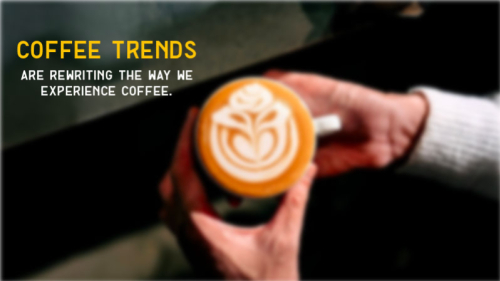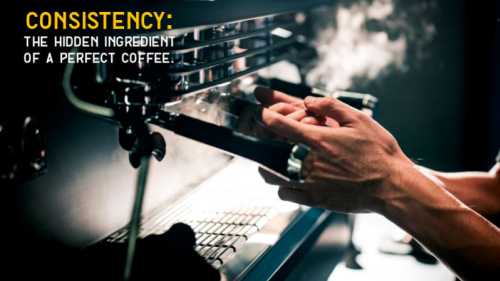Danilo Lodi talks about manual coffee extraction systems
May 24, 2021
Danilo
Lodi, Dalla Corte Coffee Pro from Brazil and official judge of the World Coffee
Events since 2011, talks about manual coffee extraction systems.
“Based on
the third wave of coffee scenario, I find that the most popular manual
extraction system is the V60, a tool designed and produced by the Japanese
company Hario. Its V shaped structure is a perfect 60 degree vortex, hence the
name. It’s easy to find in coffee shops to make filter coffee, I’d say that most
coffee shops have it. It’s one of the most popular brewing systems outside
espresso, followed by Aeropress. I often see Chemex as well - an hourglass-shaped
glass jug similar to a decanter - and Kalita, a coffee dripper from a German manufacturer.
For home
users, I would say that the most popular preparation method is moka - the
Italian coffee maker - followed by French press and the Japanese Melitta
filter.
In
producing countries, it’s very common to use cloth filters. In Latin America people
use it a lot both at home and at coffee farms, I personally grew up making a
lot of coffee with this method. And even a few coffeeshops like to serve coffee
this way, but it's not very common.
All of
these brewing systems bring different results into the cup, which is incredible
because you can grab the same coffee - and this is something I do - and you can
make an espresso, a French press, then a V60, a moka, sometimes an ibrik, a
chemex… and the resulting cup is always different. "
Are
there any official competitions for all these methods?
"Yes,
there are competitions for every brewing method, but I really love the World
Brewers Cup. It’s a competition focused on manual brewing, where competitors
can use any form of manual brewing. I've seen people using V60, syphon, chemex,
Aeropress... any system can be used to get the best out of coffee. Competitors can
also bring innovations never seen before, it is truly amazing!
There are two
rounds: the preliminary round where everyone uses the same coffee and grinder
(they can only adjust grind-size) and choose their preferred extraction system.
It’s a blind test, so the cups are brought to the judges who don’t know what method
was used, they only judge whether the coffee was well extracted. The second
round is the open presentation, in which contestants choose their coffee, their
water, whether they want to use a different grinder, their brewing method, and they
explain their extraction system to the judges. It will be this system, with
that water and with that coffee that will bring the full experience into the
cup, it’s a very fascinating competition. "
What are
some interesting recent innovations?
There is
one I really like called Gina, it looks like a V60 with an elongated neck, and you
can use a valve to control pre-infusion. It was used by 2018 World Brewers Cup
champion Emi Fukahori from Switzerland and it’s a great extraction tool.
Another
interesting one I saw at the last World Barista Championship in 2019, it’s called
Origami Dripper. It’s in the shape of an origami, folded but made of ceramic, I
like that one a lot too.
The one I
found the most fascinating, was when I judged a competition in the Netherlands
and the competitor used something called Trinity ONE. It's not very common but
I like it because it’s very consistent, I think it’s the most consistent out of
all manual brewing systems. It has a sort of portafilter, which is actually a
valve that can be opened or closed, and in the top part there’s a piston that
slowly goes down with gravity, and because of that weight extractions are consistent.
Some people
create their own extraction methods and you can sometimes find them in
coffeeshops. In some cases I happened to ask what it was, and the answer
usually is that a friend of theirs came up with that brewing system and you can
only find it there... people are trying to be creative and I think it's amazing
that they are starting to test other ways to make coffee.
What do
you think people are trying to achieve when creating a new extraction system?
I think the
trend is trying to be more consistent. We are talking about manual extraction,
it’s very hard to produce repeatable results. There’s an increasing tendency to
be more consistent by using scales, measuring in grams rather than milliliters,
using kettles that have good temperature control so that it can be as accurate
as possible when brewing.

Latest news
Zero Plus launched at Host
Oct 17, 2025









